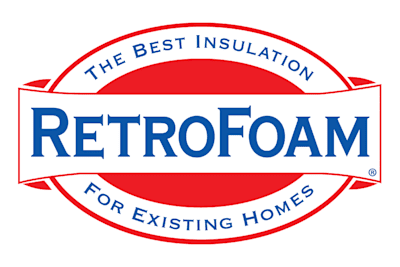Do You Need a Permit for Insulation? Understanding the Requirements
spray foam insulation | RetroFoam insulation | foam university


When considering insulation for your home, whether it's a new build, an addition, or an existing structure, a common question arises: "Do you need a permit for insulation?"
Though varying across different regions, the answer leans towards "yes.” Let's explore this in detail.
Do You Need a Permit to Add Insulation to a New Build Home?
When building a new structure, obtaining a building permit for insulation is almost always necessary.
This is part of a broader requirement where permits are needed for various aspects of construction, including excavation, foundation, framing, electrical, plumbing, and finishing.
Standards for these permits vary across the country, but insulation is typically one of the required permits and often needs to be inspected.
Do You Need a Permit to Insulate an Addition?
If you're adding onto your existing house, it's prudent to assume that a permit is necessary.
This new addition must meet current building codes, which might differ from those when the original structure was built. This means that even if your home was constructed under different regulations, the new addition must comply with today's standards.
Do You Need a Permit to Insulate an Existing Home?
This is where the rules can become a bit more complex.
The requirement for a permit for alterations to an existing home varies significantly from state to state, county to county, and even from one city to another. It's crucial to consult with your local code office or township office.
The local code official or building inspector is the authority on what is required for your specific project. They will guide you on the permits needed and the materials allowed for your insulation project.
Before You Start Any Work
Planning everything meticulously and discussing your plans with a code official is essential.
They will inform you about the necessary permits and inspections for your project.
The standards can vary, with some inspectors holding you to the code in place when the original building was constructed, while others may require that any alterations meet current codes.
Consult Your Contractor
Another valuable resource is the contractor you plan to use for the insulation work.
They should be familiar with the local codes and permit requirements. If you want to insulate or re-insulate your home, consider contacting your local RetroFoam dealer. They can provide information on the permits required and the codes to follow to make your home more comfortable.
Remember, building is a science, and complying with local codes and regulations is a crucial part of the process. By understanding these requirements and consulting with the right professionals, you can ensure that your insulation project is done correctly and legally.
Related Articles
What to Look for When Hiring an Insulation Contractor
About Eric Garcia
Eric brings his knowledge and training in building science, training in spray and injection foams from the manufacturers, more than eight years installing foam insulation, as well as selling and managing in the foam insulation industry. He is also BPI and Dale Carnegie certified and has taken several building science courses, including air sealing and building envelope. Eric is the Professor of Foam on our educational YouTube series Foam University. Even when Eric is off he is usually still “working” or thinking about work, but when he can get away he enjoys camping, hiking, hunting, and woodworking.


